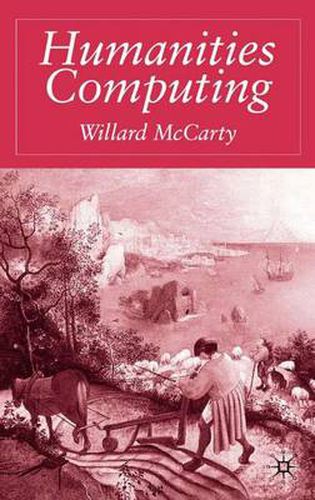Readings Newsletter
Become a Readings Member to make your shopping experience even easier.
Sign in or sign up for free!
You’re not far away from qualifying for FREE standard shipping within Australia
You’ve qualified for FREE standard shipping within Australia
The cart is loading…






This title is printed to order. This book may have been self-published. If so, we cannot guarantee the quality of the content. In the main most books will have gone through the editing process however some may not. We therefore suggest that you be aware of this before ordering this book. If in doubt check either the author or publisher’s details as we are unable to accept any returns unless they are faulty. Please contact us if you have any questions.
Humanities Computing provides a rationale for a computing practice that is of and for as well as in the humanities and the interpretative social sciences. It engages philosophical, historical, ethnographic and critical perspectives to show how computing helps us fulfil the basic mandate of the humane sciences to ask ever better questions of the most challenging kind. It strengthens current practice by stimulating debate on the role of the computer in our intellectual life, and outlines an agenda for the field to which individual scholars across the humanities can contribute.
$9.00 standard shipping within Australia
FREE standard shipping within Australia for orders over $100.00
Express & International shipping calculated at checkout
This title is printed to order. This book may have been self-published. If so, we cannot guarantee the quality of the content. In the main most books will have gone through the editing process however some may not. We therefore suggest that you be aware of this before ordering this book. If in doubt check either the author or publisher’s details as we are unable to accept any returns unless they are faulty. Please contact us if you have any questions.
Humanities Computing provides a rationale for a computing practice that is of and for as well as in the humanities and the interpretative social sciences. It engages philosophical, historical, ethnographic and critical perspectives to show how computing helps us fulfil the basic mandate of the humane sciences to ask ever better questions of the most challenging kind. It strengthens current practice by stimulating debate on the role of the computer in our intellectual life, and outlines an agenda for the field to which individual scholars across the humanities can contribute.